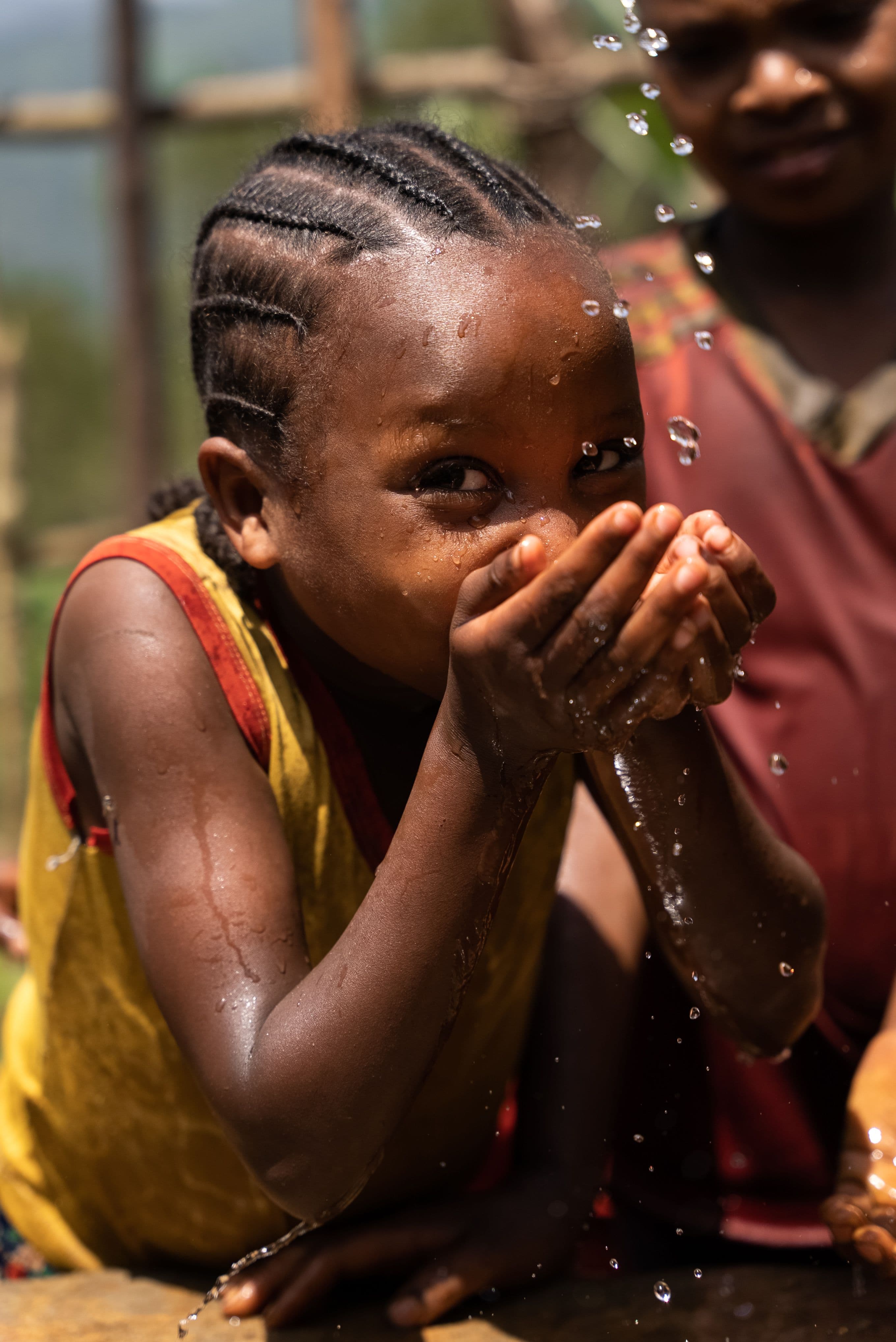- All
- Personal
- Active
Project 29: Clean Water Bensa - Ethiopia
Water is scarce in Bensa and people are going without it. Women and children spend hours daily walking to unprotected springs raising their risk of waterborne illnesses. We partnered with Lifewater to construct a well in Bensa to provide clean water and transform two remote communities. Read more
Project 29: Clean Water Bensa - Ethiopia
Water is scarce in Bensa and people are going without it. Women and children spend hours daily walking to unprotected springs raising their risk of waterborne illnesses. We partnered with Lifewater to construct a well in Benza to provide clean water and transform two remote communities.
Bensa, Ethiopia is home to 250,727 people with most families living in traditional mud-thatched houses and rely on agriculture for their annual income. Water scarcity is what the communities deem their most significant problem. Water usage is extremely low, with the average household using only 12 gallons of water per day between five-six people.
The WHO recommends a minimum of 13 gallons per day per person to meet a human's basic needs like hydration and hygiene. This means that in Bensa, families are surviving off sips of water a day.
Women and children spend hours a day making trips to unprotected springs or rivers. Contaminated water is dangerous for everyone, but particularly children under the age of five. Their immune systems are still developing, and they aren't able to fight the illnesses like adults.
The good news is, waterborne illness is entirely preventable with access to clean drinking water and proper sanitation. In partnership with Lifewater we are building a water well that provide a clean source of water for the community of Bensa in two of its villages: Chilaka Huleti and Chilaka Anidi.
Lifewater is a Christian organization dedicated to ending the global water and sanitation crisis. The organization spends an average of 3 years in the villages they serve, preparing each household and certifying them as healthy before the water point is constructed. A village is considered healthy when "90% of the village boasts Healthy Homes. When each household demonstrates that it practices five healthy habits like washing hands and drying dishes safely. Earning a 'Healthy Home' certificate and making their improvements official, entitles them to a new water point. Becoming a Healthy Village is a celebration and signifies the significant steps families have made together to take care of everyone’s health and well being.
Our givers are not only giving clean water to 500 people, but also education on how to prevent diseases best and create healthy households for brighter futures.
100% Funded
$29,000 of $29,000
People served
598 served
Project category
Health & Hygiene
Location
Bensa, Ethiopia
Water is scarce in Bensa and people are going without it. Women and children spend hours daily walking to unprotected springs raising their risk of waterborne illnesses. We partnered with Lifewater to construct a well in Benza to provide clean water and transform two remote communities.
Bensa, Ethiopia is home to 250,727 people with most families living in traditional mud-thatched houses and rely on agriculture for their annual income. Water scarcity is what the communities deem their most significant problem. Water usage is extremely low, with the average household using only 12 gallons of water per day between five-six people.
The WHO recommends a minimum of 13 gallons per day per person to meet a human's basic needs like hydration and hygiene. This means that in Bensa, families are surviving off sips of water a day.
Women and children spend hours a day making trips to unprotected springs or rivers. Contaminated water is dangerous for everyone, but particularly children under the age of five. Their immune systems are still developing, and they aren't able to fight the illnesses like adults.
The good news is, waterborne illness is entirely preventable with access to clean drinking water and proper sanitation. In partnership with Lifewater we are building a water well that provide a clean source of water for the community of Bensa in two of its villages: Chilaka Huleti and Chilaka Anidi.
Lifewater is a Christian organization dedicated to ending the global water and sanitation crisis. The organization spends an average of 3 years in the villages they serve, preparing each household and certifying them as healthy before the water point is constructed. A village is considered healthy when "90% of the village boasts Healthy Homes. When each household demonstrates that it practices five healthy habits like washing hands and drying dishes safely. Earning a 'Healthy Home' certificate and making their improvements official, entitles them to a new water point. Becoming a Healthy Village is a celebration and signifies the significant steps families have made together to take care of everyone’s health and well being.
Our givers are not only giving clean water to 500 people, but also education on how to prevent diseases best and create healthy households for brighter futures.
